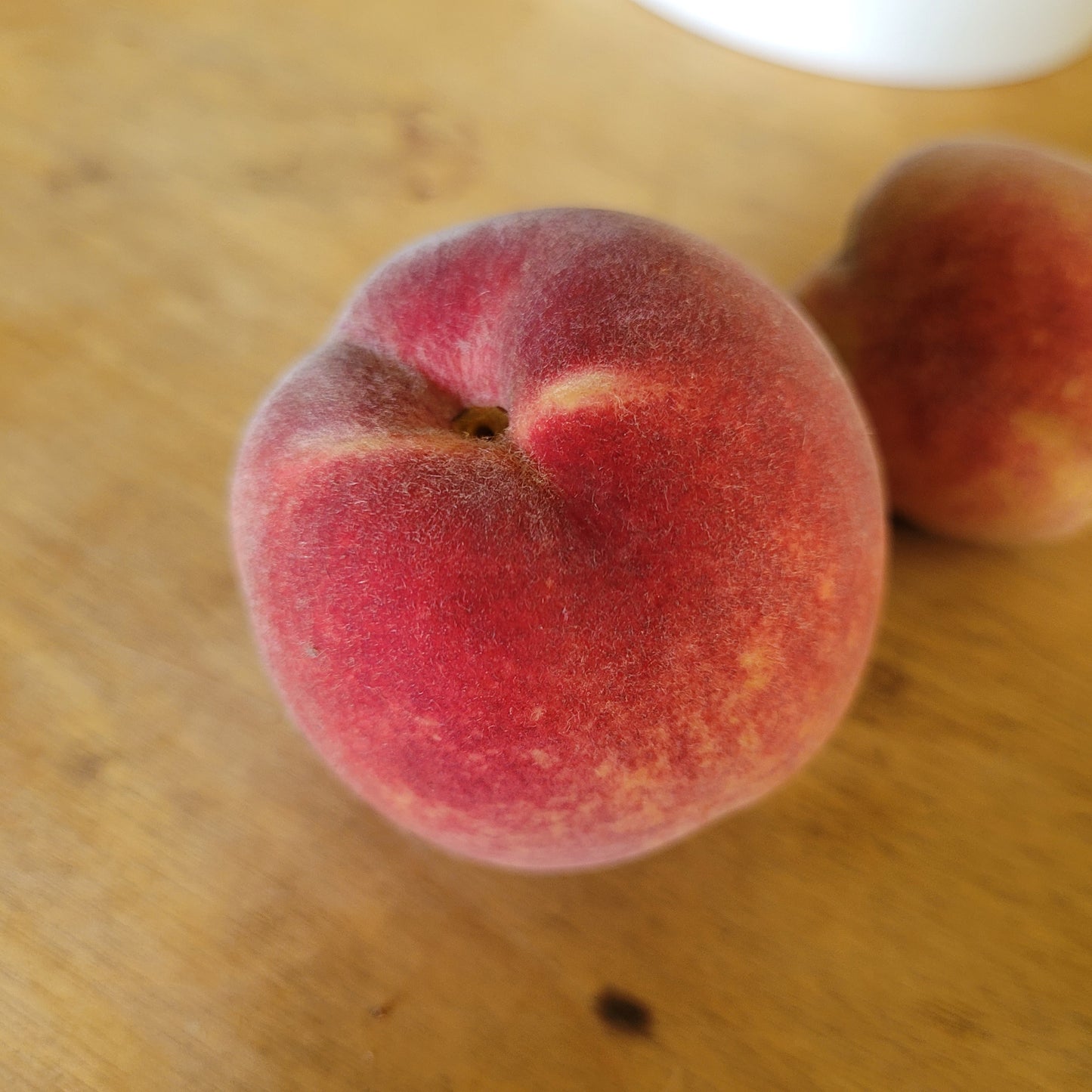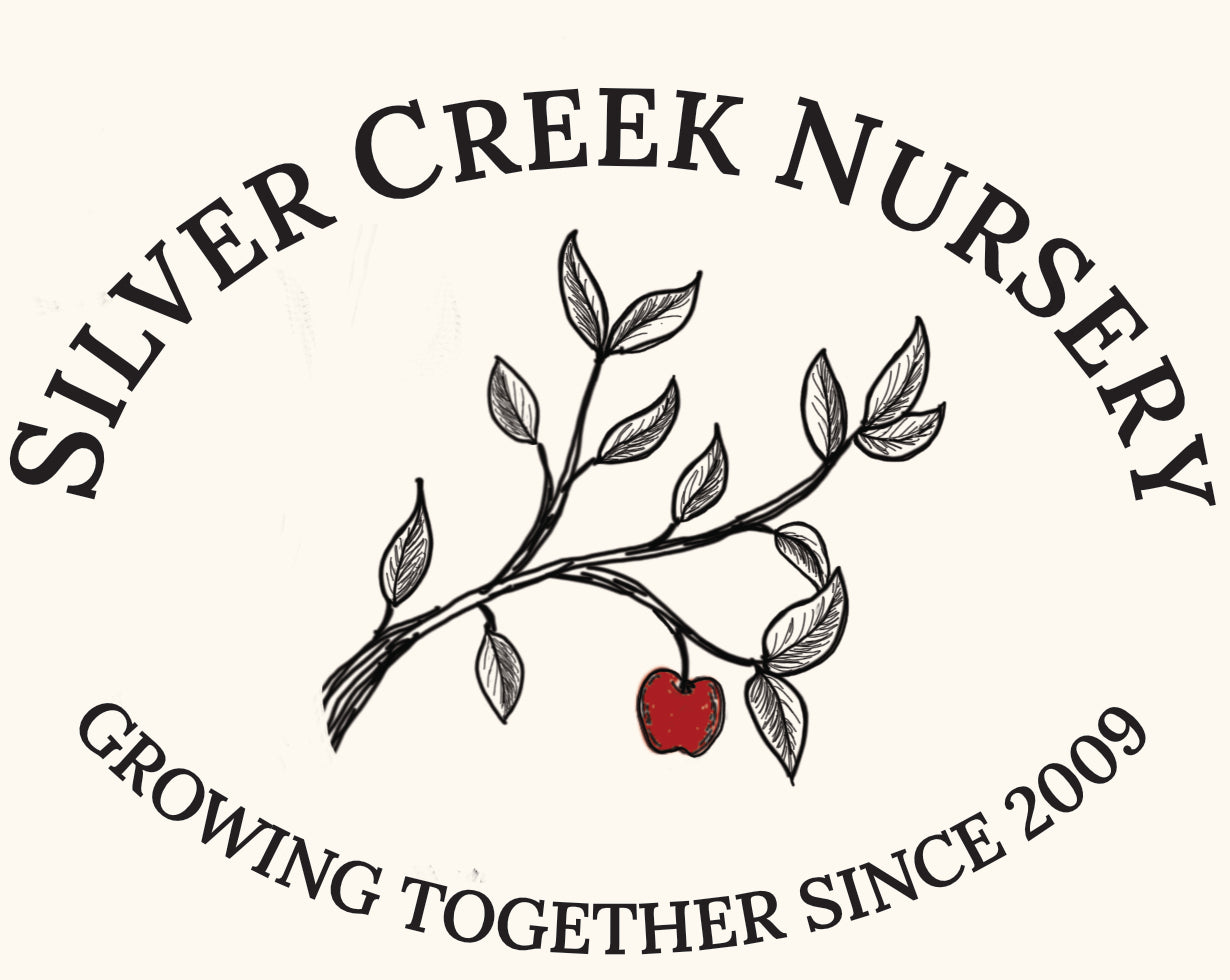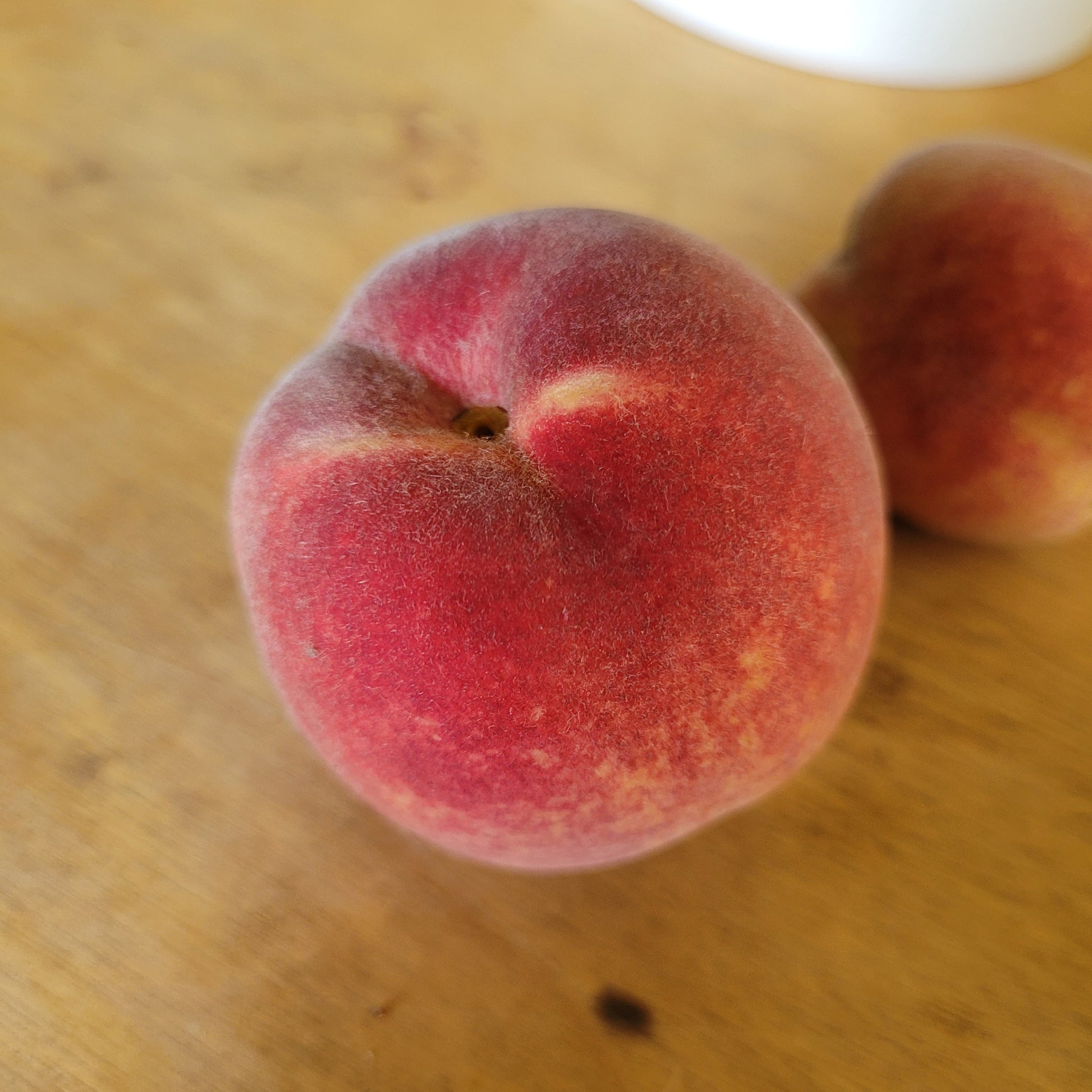Grindstone Creek Nursery
Reliance Peach
Reliance Peach
History: Reliance peaches were developed in a breeding program at the Agricultural
Extension Station in New Hampshire, where it was grown from seed in 1956. In 1961, the Reliance seedling got its first trial by fire, or ice in this case, as a severe cold spell dropped temperatures to -32°C. That summer only Reliance produced fruit and it was clear that this was a cold hardy winner. This tenacious peach was released in 1964.
Why We Grow It: Reliance is a very hardy variety that can still fruit after a winter low of -32°C, perfect for Canadian growers. The fruit is medium-sized, the skin is a dull red colour over yellow, and the flesh is bright yellow with freestone pit. It also tastes great and the fruit can be eaten fresh or used in baking and preserves.
Bare Root Peach Trees
We are very pleased to be able to offer peach trees to our customers. They are both challenging and rewarding plants to grow. However, due to the unique challenges of growing peach trees, and the increased care required for their success, we regrettably cannot offer our standard 90 day guarantee on peaches. Please inspect your peach trees to your satisfaction when you pick them up at the nursery, or immediately upon arrival if they are shipped. For shipped trees, make your claim within 7 days of receipt of the trees. After 7 days of receipt, you will have been deemed to have accepted the trees in as-is condition.
Fruit Specs
Fruit Specs
Recommended Use: Fresh eating, baking, preserving
Fruit Size: Large
Storage: Keeps about a week in the fridge
Harvest: August - Mid
Growing Specs
Growing Specs
Canadian Hardiness Zone: 5
Soil Preference: Sandy loam, loam, clay loam - nothing very heavy, ideally with good fertility. Prefers average to moist conditions with well-drained soils, avoid planting anywhere that floods for more than two weeks in the spring. Peaches are extra sensitive to 'wet feet', or soils with poor drainage.
Flowering Time: Late
Bloom Colour: Pink
Pollination Requirements: Self-pollinating, this variety will produce fruit without a peach tree of a different variety but will produce more and better fruit if one is present
Sun/Shade Requirements:
Full sun (approx. 8-10 hours of sun daily)
General Growth Habits:
Very vigorous and cold hardy, produces good crops. Resistant to bacterial leaf spot.
Shipping vs. Pick Up
Shipping vs. Pick Up
CLICK HERE to see how shipping compares to pick up.
Shipping: Every year we ship thousands of trees across Canada (except BC due to CFIA regulations). We carefully bag roots in damp sawdust, then box them and send them out via courrier. CLICK HERE to see our shipping policy.
Pick-up: We also have thousands of trees picked up from our nursery each year. The pick-up options is free, though you must wait until you have been emailed a confirmation that your order is ready to pick up, which will have further information such as hours, locations, etc. We really appreciate if you can make an appointment to pick up, then we can be as organized as possible during our busy season.
Size at Purchase
Size at Purchase
Our grafted fruit trees are graded into three categories, and the size includes the rootstock:
- 50-80cm whip: may have some minor branching, this grade is like a "b-grade" size tree in industry standards; we include in this price category trees that are over 1m but have some scarring or mild crookedness.
- 1m+ whip: may have some minor branching, aka feathering. This is like a typical one-year whip in industry standards.
- 1m+ branched: these trees must be over a meter and have 3 or more branches 30cm or longer, as well as a central leader. They are essentially a two-year tree in industry standards.
- For stone fruits only - 1m+ whip/branched: We have combined these grades based on the way these trees grow and are grafted. Plums, apricots, cherries, and peaches naturally tend to grow more vigorously compared to apples and are more likely to form larger trees with more branches. However, we only chip bud them so they are a one-year old tree by industry standards. Apples and pears are partially bench grafted, and using the knip-boom method the grading becomes more complicated, hence the reason they are split into different grades.

Orders that are cancelled last minute due to size (being "to small"), will still incur the applicable cancellation fees if the trees are true to our grading standards as per the agreement of sale when the order was placed.
Couldn't load pickup availability
Share


